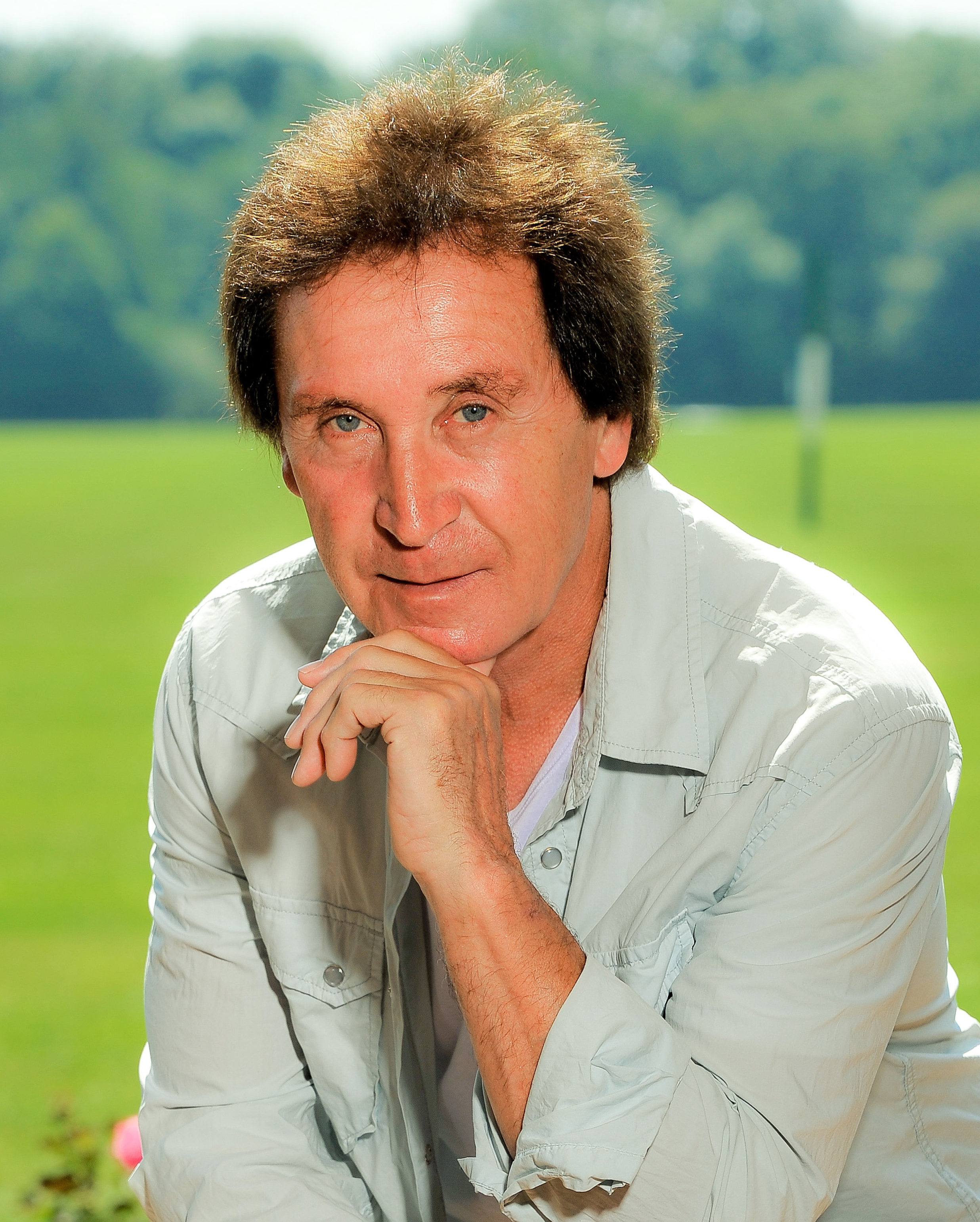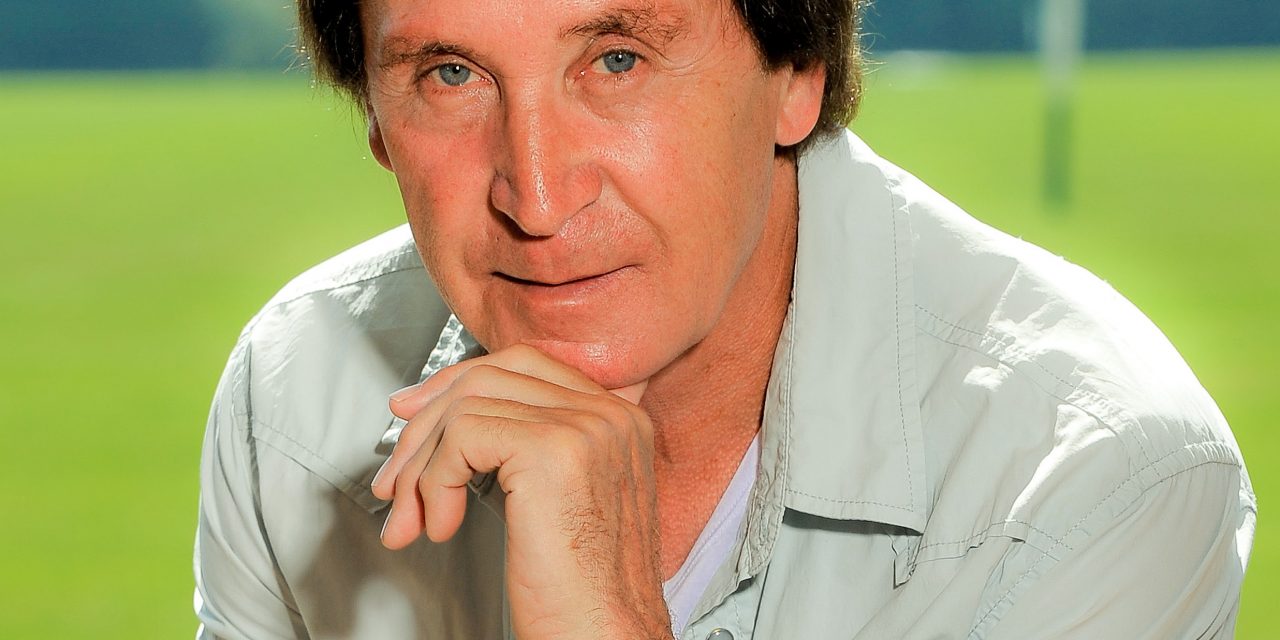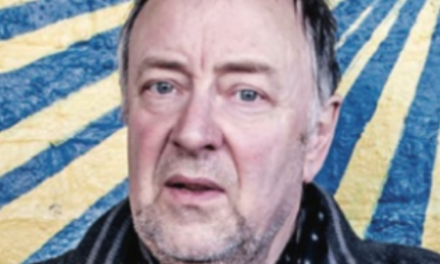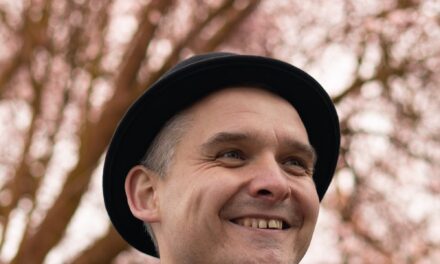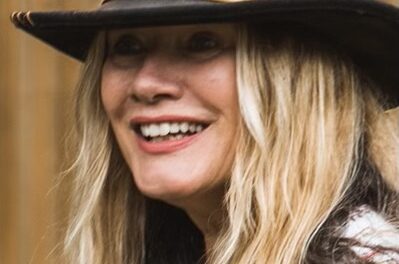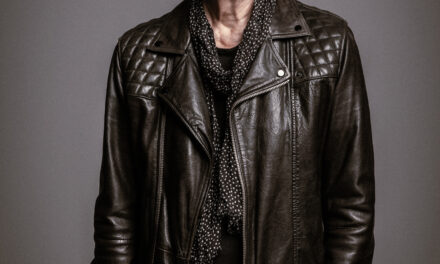Kenney Jones
If there is a rock music autobiography you MUST read, it’s drummer Kenney Jones’ tome LET THE GOOD TIMES ROLL. It’s informative, colourful and authentic as the life of this family man unrolls. Kenney and I met over tea to talk about his story and the characters he learned from and worked with…
JLTT: I’ve been reading this ‘Let The Good Times Roll’ book and there are a few things about it I wonder and I have made some notes.
KJ: Okay, Pete..let’s go
There are two key elements to this book as I see it: one is the importance of family and the other which is shining through is honesty.
Absolutely. (Ponders) My response to that would be you’re bang on. Basically, a lot of people say to me “Was it easy to write?” and I said “In a sense it was, because all I did was tell the truth.”
That is it! That’s what I’m saying.
So for me, it was a release as well at the same time because when I was remembering everything I got up to – I should have called it that “What I Got Up To”. I had a chance to reflect and the great thing about it was that I had to put myself in the position I was then and the way I felt then.
Absolutely.
So that was emotional. Really emotional for me to live that again. Then I could reflect at the same time and say “You know what? Now I’ve got an opportunity to also put things right.” We have all said things we don’t mean over the years and we are all headstrong sometimes. Also, I was a lot younger so I never really put myself in the position of thinking it from the other side. In hindsight, there were some things I would not have said if I had the chance to understand it from the other guy’s point of view. A lot of things I have said and done on impulse that I shouldn’t have done.
Surely you have to accept that life’s a learning curve.
Completely. That what it is
One thing that comes through very strongly which really struck with me – one thing is that always as one door shuts another one opens.
Yes , very very true
A very important thing in life. The other thing is, you seem to rate people and relationships purely on how people behave which is kind of a levelling platform.
It is the only thing to react to. It feels natural for me to actually judge people on… I’m not usually inquisitive that much and I usually accept people on face value. Until they do something wrong and that makes me think about it a little bit more.
There’s an intrinsic purity to that.
I think that is absolutely one hundred per cent how to live. Usually I don’t look for anything negative in someone when I meet them it is always positive. Until you learn a bit more about them and you realise that something is not quite right and you find out what they are all about really.
The enemy of progress is often selfishness isn’t it?
Yeah, definitely!
People do something that suits them at the time.
It’s funny because as a kid when I was growing up I am an only child I discovered first off through my mum and dad the power of giving. That feeling you get when you give someone something or do something for someone and you feel so good about yourself. You lose that that over the years when you get older.
I’m not the best person at interviewing drummers because I play everything but. However, in interviewing all of the drummers of the era and meeting them – I’m thinking about John Hiseman, Clive Bunker, Mitch Mitchell and Ric Lee of Ten Years After especially, there seems to be especially in the Sixties and Seventies, a kind of camaraderie and friendship between drummers.
Decidedly yes
They mostly loved jazz like Louie Bellson and Buddy Rich. Is that something peculiar to drummers?
No. I think especially in the early days coming right from the older drummers in the Sixties AND it is still there with younger drummers today.
These guys can all play jazz.
So can I, I love it.
What would the (Jimi Hendrix) Experience of been without Mitchell?
Oh I know. It is free form all over the place. I had to go play an open-air stadium gig as a guest and played with Bo Diddley. John Lodge from The Moody Blues was playing on bass. Mitch was playing as well and Bo Diddley could just not get his head around playing with Mitch because he was like “No its boom-de-de-de-boom boom boom” and Mitch said “That’s what I’m doing”. But it was great because otherwise it would have been just like the same as any other song. It was quite a funny moment. But Mitch and I go back 64’ and 65’ something like that. I am a big fan of The Shadows and Brian Bennett.
Do you know Warren Bennett, Brian’s son?
No I don’t really know him but I’ve met him a few times. When I have gone over to Brian’s house he has been there. A very talented guy.
Warren works with a mate of mine called Michael Armstrong and they have just put together Michael’s new album.
Yeah, he works hard on getting it right.
He seems to have inherited this method thing of hearing how things might be. Seems to have a vibrant idea about mixing and arrangements which he mostly got from The Shadows. It is this adventurous thing almost like a traveling sound.
It has never left me at all. It never leaves me. Once you’re a Shadows fan… you are a massive Shadows fan and I just love playing the stuff.
To what extent, were you influenced/impressed or not by the American drummers that you heard?
Well, all the American drummers… it is very difficult to answer the question properly because basically there have always been American drummers but now there are thousands of American drummers and you know they are all great. But it is nothing like the old-school early days of the Sixties when they’re was only a few like Al Jackson. I’ve always been a fan of Al Jackson.
My bass player is a Duck Dunn fan.
Duck Dunn is great.
I was impressed by Bobby Colomby of Chicago. I thought ‘How can this man be playing with six or seven other players and still be in control?’
Absolutely because being simple and knowing your place is the best. If you don’t know your place, where you are and what you are there for as a drummer then you are just muddying the waters really.
Let’s talk about The Small Faces if we may. One of the things I picked up was that I got the impression that Steve Marriott was a little bit in awe of the flashy guitar players of the time.
Steve Cropper especially.
Did that zap a bit of his confidence?
No ..I mean he would definitely be in awe of them because the weird thing is he was the singer and playing the guitar really got in the way of his vocals a little bit and that is why he wanted Peter Frampton to join the band. So he could relax.
One of the favourite singers that I had from that era was Bobby Bland. I wondered whether Steve was a fan of his?
Steve saw something nice in everybody in that class so he probably was yeah.
So he would have heard Curtis Mayfield.
Definitely. When we first got together we would play a lot of records to each other. I mean, Steve was the first person to turn us all onto Jimmy McGriff.
Oh!
So that’s how I started to get into jazz and free-form. For me as a drummer, I make things swing I don’t just play up and down. That’s just terrible.
With Ronnie Lane, one thing I always thought is, was Ronnie Lane a fan of Paul McCartney?
(Warm sigh) Yeah… we all were.
Because there often are these little melodic runs which slip into Ronnie’s playing that makes you think ‘Oh that’s ‘Old Brown Shoe’!’
The reason Ronnie Lane, which I mention in the book I think, is such a different bass player and so good at what he did and so inventive was because when Ronnie and I first met he’d only been playing for a couple of weeks and because he was a fan of The Beatles and many other American guitarist he bought a Gretsch George Harrison style. So he’s learning to play on that and playing lead. We are learning in his mum’s front room and he’s learning to play guitar and I’m learning to play drums at the same time. That’s what I loved about it. It was the moment of discovering each other but also discovering what we were doing together.
When he was playing he was looking at his fingers and you could never get in the groove which was frustrating. And he got fed up with it cause’ he said to me one day “Kenney I don’t wanna play lead guitar anymore. I’ve thought about it and I wanna play bass.” So I said “Okay. Let’s go to the only shop (where he bought his guitar and I bought my drums but we didn’t know each other at the time) in the East End up in Manor Park
I was the opposite side. I’m a Chiswick lad so that’s the other side.
(Laughs) You were the posh side or so we thought! Like White City and Shepherds Bush we thought “That sounds posh” until we went there. We realised you‘ve got an East End on the other side of London as well.
(Laughs) Yeah pretty much. It’s weird how we’re both Londoners, but there’s still that East and West thing.
So Ronnie got into that and got the bass going. That’s when he started to take off and sing and feel comfortable. The reason why he is such a different bass player is because of his experience of being a lead guitarist first. That’s what I put it down to.
I played bass first and then bought a six-string so I came at it the opposite way round. By the time I was playing guitar chords or whatever, I had a very good sense of timing.
Yeah. That would follow on of course
You see, what I used to do was buy jazz trio records and pretend I was the guitar player. In my head I was the fourth member of the Dudley Moore Trio! Chris Karan on drums. So that actually taught me how to play the groove – just playing the records over. And that got me playing Bossa Nova and Three-Four and everything else. Unconsciously, I was just trying to fit in with the groove and I didn’t realise I was playing jazzy tempos.
That’s exactly what happens, you see? You listen to something and you think “I’m gonna play along with that. That’s great.” I was a big fan of Edmundo Ross Orchestra when I was a kid so all those different Latin American rhythms – and Jimmy McGriff. Great stuff and I would play that all the time.
The sound to me kind of pumped a lot and it wasn’t just playing. It had a beat thing and the best thing ever is when you are suddenly playing across time and the band is pumping on. It just picks the ears up doesn’t it?
If you take the old school of drummers which I fit into unfortunately, or fortunately I should say, you’ve got people like Charlie Watts, Mitch Mitchell.
Shelley Man was it?
Yeah Shelley Man.
Lots of drummers I know say he was good.
I only knew Shelley Man as the name of the band. You’ve got Bobby Elliott, Brian Bennett.
The Pretty Things and Viv Prince. Nut job but my god could he liven up a record.
Did you ever see him play?
Yeah I did.
He’s great. I saw him down the 100 Club in London years ago. They all come from the old school ‘It don’t mean a thing if it ain’t got that swing’. They swing whatever they play and that’s what I try to do.
You know a bit of my history, I was a huge fan of The Faces and used to go to their gigs and I was huge admirer of Ronnie Wood because I thought he was the best bass player ever on the Jeff Beck records.
Me to! Best bass ever
I listened to ‘Truth and Beckola’ and I thought “You cannot get more unselfish, rhythmic, inventive, entertaining bass playing then this.” I was so impressed.
He’s stunning.
I think he discovered slide guitar about the same time I did through Johnny Winter and Rory Gallagher.
Pedal steel as well.
A big part of the Faces sound was the great use of slide guitar.
Absolutely.
I was walking through Soho one evening and we were just getting some records and going for dinner and we ran into Rod (Stewart). He recognised from the crowd or whatever and said “Are you coming to the gig tonight?” We replied “There’s no gig tonight” and he said “Yeah there is at The Marquee” and we said “No it’s a private function” And he explained “Yeah that’s us.” Then he gets a fag packet out and says “Give us your names!” Then we went down to The Golden Egg for an omelette.
(Laughs) The Golden Egg! Wow – the memories!!
Then we come back and they let us in and it is a German TV crew. Jack Barry has smelt money and has painted in black and white ‘The Marquee Club London’ on the back wall. And the reek of the paint I don’t know how you could stand! The German TV crew were directing the band to do stuff and Ronnie was joking with “We have ways of making you groove!” and all this. But I think Rod had been at the dentist and had quite a swollen tooth and Ronnie was taking the mick out of him. I actually found a DVD of it being broadcast on German TV. Of course then, every kid coming from Germany to London goes “We must got to The Marquee Club” because Jack had the sense to pump the name up with a free advert for half an hour every week on German TV. The Marquee gigs with The Faces were great.
Well The Small Faces played there a few times as well. It was great.
I always called my friends to come and see The Faces and I would say “They are serious players having fun.” Everyone in that group was a fabulous player especially Mac.
Oh yeah. When Mac joined the band, I went on another dimension as a drummer because I had -this fabulous keyboard player in the band. For me, before Mac joined there was always a hole in the sound because Steve was trying to do to many things at once. In other words, Steve was great at rhythm but then the rhythm guitar would stop. When Steve took a solo. So when Mac joined it filled that gap.
Do you have a favourite Small Faces track?
I keep getting asked that all the time!
I’m sorry. I hate asking the same questions.
No it’s alright, mate.. it is just so difficult to answer.
I love ‘Afterglow’.
‘Afterglow’ my band do it as well as it is an unbelievable song. It should’ve been a single I don’t know if it was a B-Side. It is great to play from a drummer’s point of view. It is great to play as a song and from a singer’s point of view it is incredible.
To me, it had a sound of its own. The other track that had a sound of its own sound entirely I thought was a Beatles song called ‘Rain’. Which was the other side of ‘Paperback Writer’. Ringo Starr on that was just fabulous.
Very inventive, I do remember that.
Ringo is marmite to people but to me I think he is very musically. He is not out to shout “Hear my drumkit”.
Oh no. With The Beatles, it is hard to imagine anyone else playing their style in The Beatles as a drummer because it wouldn’t fit. Anything more would’ve been too much and anything less, well…
It would not have had the presence. He had presence without wanting to take things over.
It is the right thing to play. That’s why a drummer must always know what their place is in that particular band.
Pete Sargeant
(Thanks go to Kenney and his family, for all help and input plus images supply)
Keep an eye out for Kenney Jones Part Two exclusively on Just Listen To This.
Kenney Jones’ autobiography ‘Let The Good Times Roll’ is out now and published by Blink Publishing.
It is available from bookshops and retailers.
You can also purchase the book here: https://amzn.to/2XPt5S3
You can also follow Kenney Jones on Twitter here: http://bit.ly/2EQoyGh



